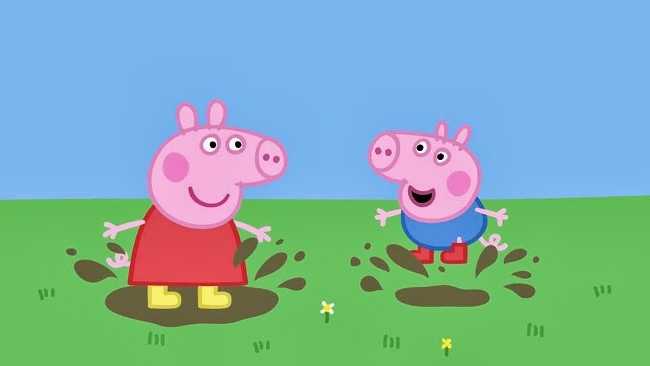Por: Eunice Alcalá
Each Peppa Pig episode leaves kids laughing, but the charming pig is again under fire for being linked to autism and other long-term developmental issues. A new round of rumors have emerged that the well-loved show poses dangers to its young viewers.
The reports are based on a so-called 2012 research by epidemiologist Marc Wildemberg from Harvard University. Wildemberg claims that children who watch Peppa Pig for at least half an hour have 56 percent increased chances of having autism. While the alleged study already made headlines years ago, several media outlets have brought back the story.
It isn’t the first time that Peppa Pig faced criticisms. In a previous interview with Courier Mail via Daily Mail, Dr. Karen Philip used Peppa Pig as an example of a cartoon that prevents kids from “developing skills in empathy and reading other people’s body language.”
She claims that children aged 4 to 5 get so used to watching the television that they fail to develop complete brain functions. Despite this, she reminds parents that the potentially harmful effects of television may be reversed if parents will allow their children to watch educational programs instead. Philip adds that something good can still come out from watching Peppa Pig.
“If parents interact with them during a show or if they want to watch, say Peppa Pig, and they’re doing the singing and dancing and interacting, that’s completely different.”
Parents have varying opinions when it comes to Peppa Pig. In an article published by Netmums, several parents have been interviewed on why they dislike Peppa.
“Parents complain that their children copy Peppa’s annoying behavior – behaving like a brat, burping and blowing raspberries all the time, and saying ‘I don’t want to play with you anymore’ to their friends (just like Peppa does). That and they start jumping in muddy puddles all the time!”
Some believe that Peppa Pig contains sinister messages and portrays stereotypes. One example that parents cite is that Daddy Pig is the one who has an “important job” while Mommy Pig is the one who often goes around making tea. There are children who allegedly copy George’s responses to food. When asked what they would love to have for breakfast, some kids would answer “chocolate cake.” They would also say “yuck” when parents try to feed them vegetables.
image: http://cdn.inquisitr.com/wp-content/uploads/2016/10/Peppa-Pig-family-670×375.png

On the other hand, Lifestyle One reports that many consider Peppa Pig to be educational. One mother, whose son has developmental delays, lauds the show.
“He now knows some things that we have never even mentioned to him, such as actions for Twinkle Twinkle Little Star… We have seen a massive improvement since he has been paying attention to the [show].”
Peppa Pig is deemed as one of the highest-rating television shows for children. The first Peppa Pig episode aired in May 2004 but the show went on hiatus. The new episodes started airing in February 2015 and are now shown in 180 territories. The series, which has been translated into 20 languages, won the Best Pre-School Animation award in 2005, 2011, and 2012.
Many insist that at the end of the day, it is the job of parents to limit their children’s access to technology. There is no evidence yet that watching television indeed leads to autism, but studies advise that a child diagnosed as autistic must have limited access to the screen in order for him or her to have more meaningful pursuits. Cartoons, when carefully selected, can help children connect better with their peers.
Taken from: http://www.inquisitr.com/3626660/is-peppa-pig-causing-autism-and-making-kids-lose-their-sense-of-empathy/






 Users Today : 9
Users Today : 9 Total Users : 35404031
Total Users : 35404031 Views Today : 10
Views Today : 10 Total views : 3333489
Total views : 3333489